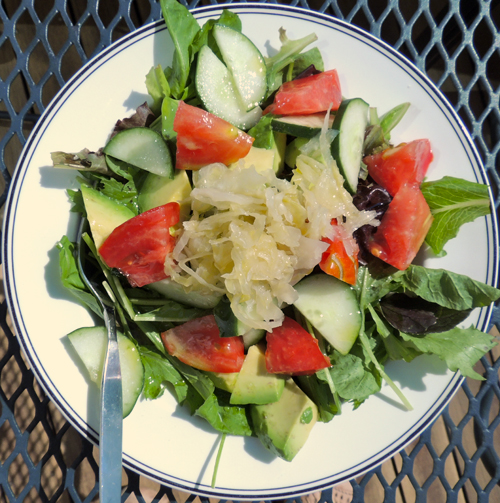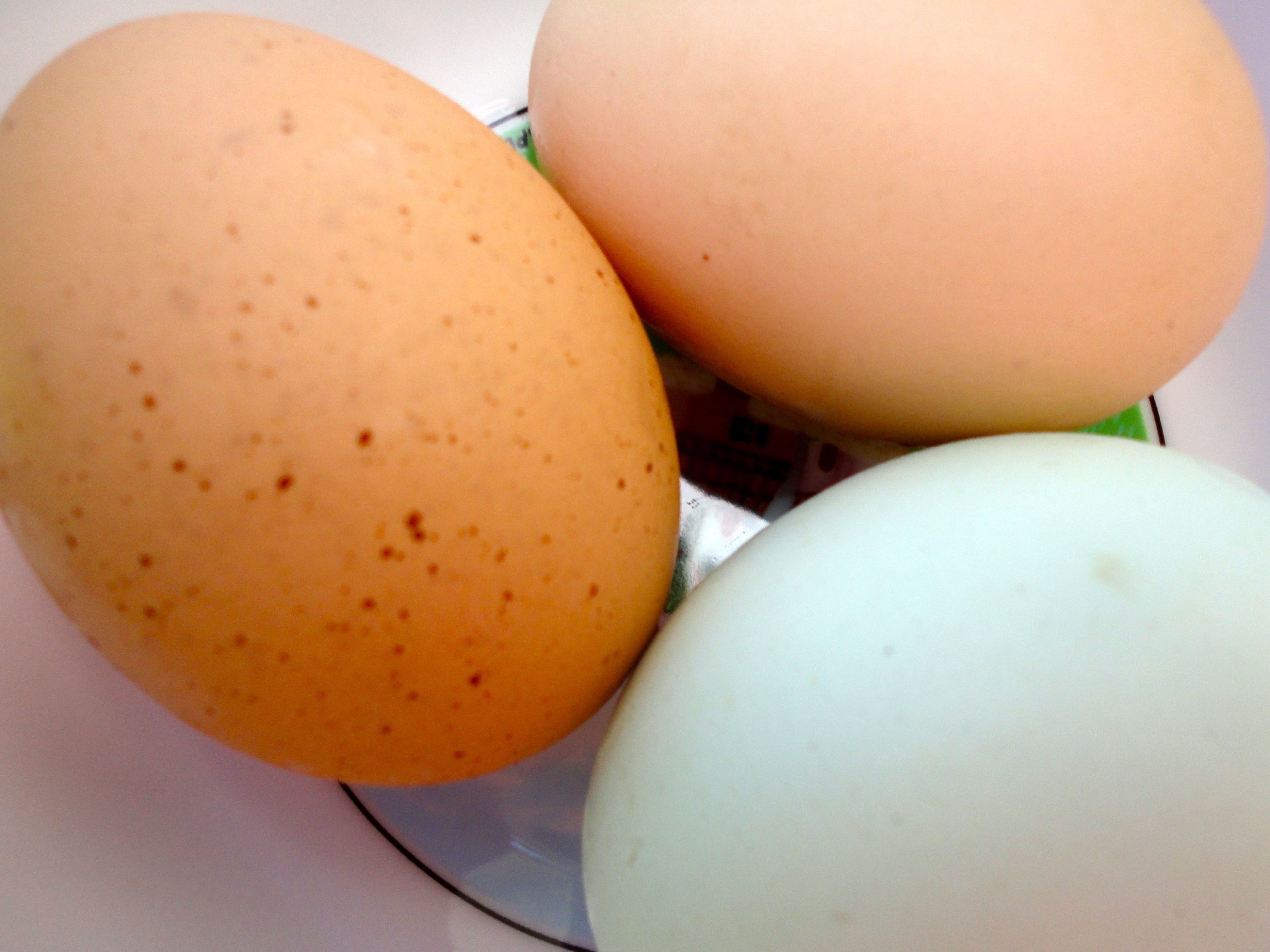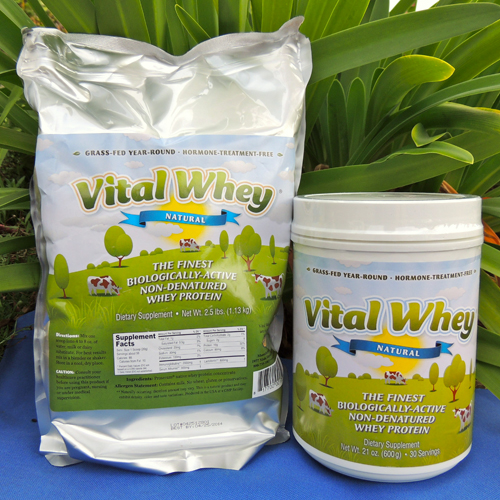Bursting onto the health scene as “the master antioxidant,” glutathione has been in the spotlight recently for its ability to enhance the immune system and increase energy. With this rise in popularity has come a boisterous parade of glutathione supplements to pharmacy shelves, all packaged in clinical-looking pill bottles and marked with claims of their incredible health benefits. Often discussed using dizzyingly-complex scientific jargon, it can be exceedingly difficult to sort through the convoluted information available on glutathione. Amidst the mishmash of sales pitches, are there any wholesome, all-natural ways to boost your levels of the antioxidant glutathione? Let’s take a bit of time to discuss what glutathione is, its role in health and how to keep your glutathione at peak levels using real food and lifestyle practices.

Glutathione in Review
Glutathione is a substance found in every cell in the body, where it acts as an antioxidant to neutralize free radicals and prevent cellular damage. Chemically, glutathione is a simple molecule composed of three protein building blocks or amino acids- cysteine, glutamine and glycine. While certain vitamins, minerals and phytochemicals also act as antioxidants, glutathione is different because it is intracellular and produced inherently within a well-nourished and healthy body. Proper glutathione levels are actually required so that the other antioxidants such as vitamins C, E, selenium and carotenoids, can be properly utilized within the body. Not solely an antioxidant, glutathione is also essential in other vital biochemical functions such as energy utilization, immune system activity, detoxification and disease prevention. Natural glutathione production is easily disrupted however, and stores can become quickly depleted by the ravages of poor diet, stress, medications, infections and radiation and other toxins. Therefore, in a modern world that is often tumultuous and oh-so-far from natural, taking special care to maintain proper glutathione levels in the body is of particular importance. For detailed information on the importance of glutathione and causes of deficiency see our blog What is Glutathione and Why Do We Need It?
Glutathione Supplements: Do They Work?
If glutathione is so fantastically important, it makes sense that we should be able to incorporate a bit extra with asimple supplement and wallah! feel instantly revitalized. The problem with this desirably convenient solution however, is that oral glutathione supplements have repeatedly performed poorly in studies testing their absorption. Although some practitioners have reported a success with intravenous glutathione formulations, this method is invasive, expensive and often inaccessible to the average individual.
Another concern with glutathione supplementation is that by introducing large quantities of artificial glutathione, the body’s natural system for production will be disrupted. When a surge of compounds is introduced via synthetic supplementation, the body may cease its own production under the false perception that there are already adequate stores available. Over time, this mis-signaling could lead to a dependency on supplements as natural production screeches to a halt.
7 Simple Ways to Enhance Glutathione Production
While scientists clamor away, trying to find a marketable form of artificial glutathione, there are many effective ways to enhance glutathione levels naturally. By supporting the body with the proper nutrients and movement that it needs to reside in a state of harmonious balance, one can optimize glutathione production over the long-term.
Fresh Fruits and Vegetables

Including an array of fresh, organic produce in the diet is helpful in providing the body with the nutrients it needs to create glutathione. Sulfur-rich vegetables such as garlic, onions, parsley and cruciferous vegetables are particularly helpful in addition to avocados, squash and tomatoes. Be aware that cooking reduces the glutathione content of vegetables by 30-60%, and canning eliminates it completely.
High Quality Whey Protein
Nondenatured, native whey protein contains the highest levels of the full range of naturally-occurring glutathione precursors: covalent bonded cysteine, lactoferrin, immunoglobulins, and active peptides. Not all whey proteins are created equal: be sure that whey is from grass-fed cows, cold-processed and without sweeteners or other additives as these factors have a deleterious effect on the delicate glutathione-boosting proteins. We incorporate it by adding into our Radiant Life Superfoods Smoothie Recipe in the morning.
Healthy Exercise and Recovery
Glutathione production is dependent on adenosine triphosphate or ATP, the molecule which supplies cellular energy. Kick start your energy system by including a healthy amount of physical activity into your routine. Ironically, exceedingly strenuous exercise can lead to extensive cellular damage and free radical production however. So, contrary to the popular “no pain, no gain” dogma, take care to practice healthy fitness and discover the balance that currently works for you, including adequate rest and recovery. Rebounding is one very effective way of enhancing cellular metabolism, while minimizing injury risk.
Raw Milk and Raw Eggs

Fresh, raw milk and raw eggs promote glutathione production, however these benefits are completely lost during pasteurization. High-heat processing obliterates the useful proteins, cofactors and cultures. Obtain raw milk and eggs from pastured chickens at a trustworthy local farm. For resources on finding farms near you, connect with the Local Chapter Leaders at the Weston A Price Foundation or visit realmilk.com
Red Meat and Organ Meats
Alpha lipoic acid, as found abundantly in red meats and organ meats from grassfed animals, has been shown to help regenerate glutathione and support the sustained activity of vitamins C and E in the body. If you are leery about incorporating actual organ meats into your diet, desiccated liver is a helpful way to reap all of the benefits of organ meats without the sensitivities about taste or texture.
Organic Turmeric
This delicious Indian spice contains curcumin, an active compound known for its potent healing qualities. In addition to acting independently as an antioxidant and antiseptic, some studies have indicated that curcumin may be very helpful in enhancing glutathione metabolism. Incorporate turmeric into your diet by adding it into soups, stews and salad dressings or by using the capsule form. Be sure to find a high quality source of turmeric that is organic, properly ground, and additive free.
Stress Reduction

While practicing methods to promote glutathione production, it is also important to actively minimize the factors contributing to its depletion. Chronic low-level stress is one of the primary means by which glutathione is lost. Our bodies simply weren’t designed to handle the prolonged cortisol and adrenaline release experienced as a result of unchecked stress responses. Find a means to reduce stress through practices of mindfulness, yoga, time spent outside, reading or laughter. Although simply stated, finding a way to manage stress can be very difficult. It is one of the most genuinely healing steps you can take towards vibrant wellness.
Resources
The Biochemical Magic of Raw Milk and Other Raw Foods: Glutathione
Curcumin Induces Glutathione Biosynthesis
The Biological Activity of Undenatured Whey Protiens: Gluathione Synthesis
*All articles and information on this website are for educational purposes only. They are not to be regarded or relied upon as medical advice. These statements have not been evaluated by the Food and Drug Administration. This product is not intended to diagnose, cure, treat or prevent any disease. Results may vary per person. Consult your health practitioner if you have health problems.




